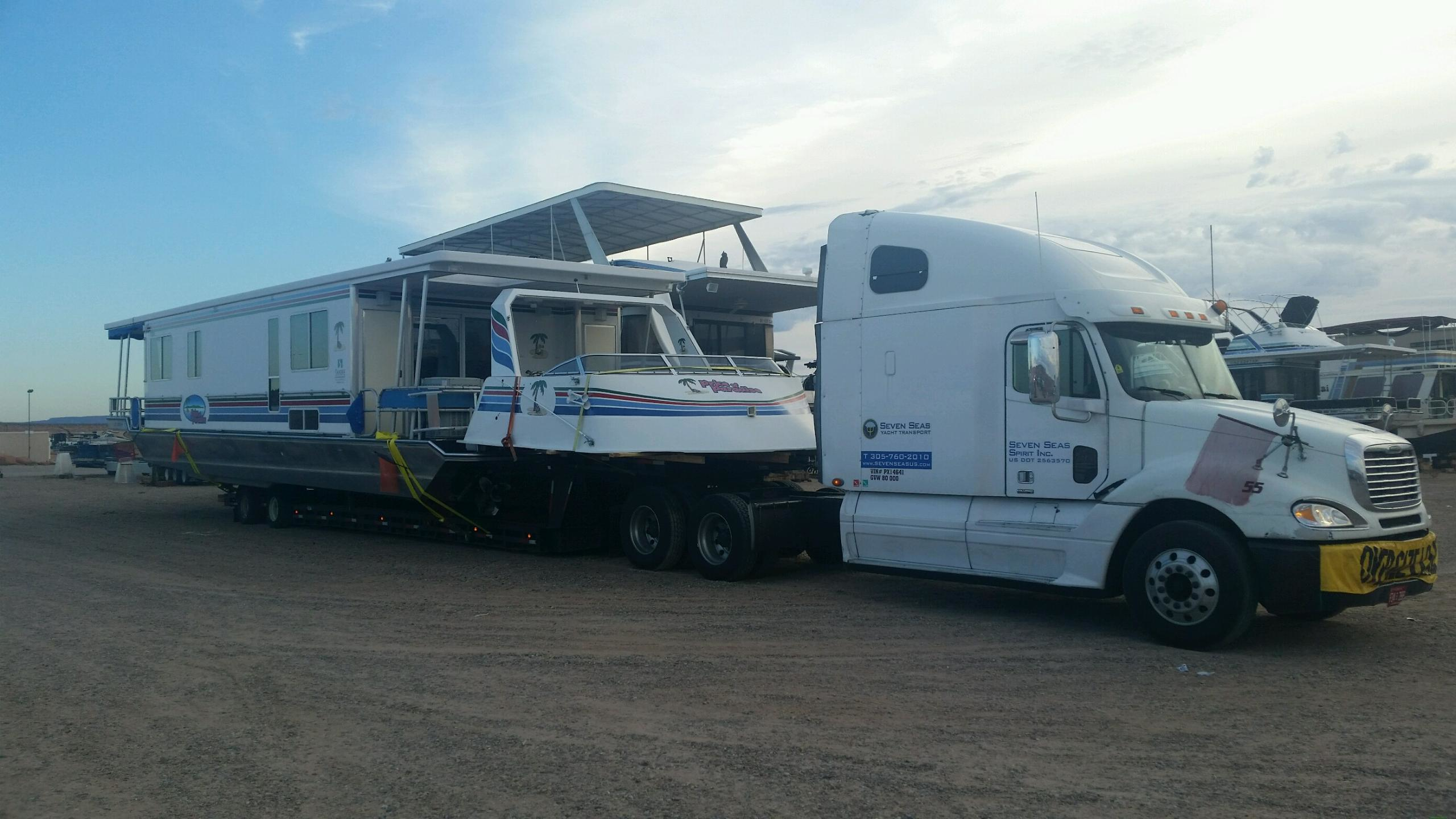HOUSEBOAT TRANSPORT
A houseboat is a boat that has been designed or modified to be used primarily as a residence. Houseboats are often motorized and can be used for regular travel, but they are usually kept stationary at a fixed point and used as a regular dwelling. Houseboats are popular in regions with large lakes or calm river systems and are commonly found in places like Kerala in India, the waters of the Netherlands, and various parts of the U.S., such as the Mississippi River.
Before trucking (transporting overland using a truck or trailer) a houseboat, several important considerations must be taken into account:
-
Size and Weight: Houseboats are generally large and heavy. You need to know the exact dimensions (length, width, and height) and weight to ensure you can legally and safely transport it over the road.
-
Preparation: Prepare the houseboat for transport by removing any loose items, furniture, and personal belongings. Disconnect utilities like water and gas.
-
Height: Since houseboats often have upper decks or superstructures, they can be quite tall. You need to ensure that the overall height when loaded onto a trailer does not exceed road height limits. This might involve removing portions of the superstructure.
-
Width: Houseboats can be quite wide, potentially requiring special permits for oversized loads.
-
Legal Considerations:
-
Permits: Due to their size, transporting a houseboat usually requires special permits. These permits may dictate the route you must take.
-
Escort Vehicles: In many places, oversized loads require an escort vehicle to ensure safety. This could be an additional cost and logistical consideration.
-
-
Insurance: Before moving, check your houseboat's insurance policy. You might need additional coverage for transport. Ensure the trucking company also has proper insurance.
-
Select a Specialized Transporter: Not every boat transporter will have experience with houseboats due to their size and unique challenges. It's important to select a transporter with the right equipment and experience.
-
Route Planning: The chosen route must accommodate the houseboat's size. Planning should avoid low bridges, narrow roads, or any other obstacles.
-
Trailer: Ensure the trailer is capable of handling the weight and size of the houseboat. The boat needs to be properly supported to prevent any damage during transport.
-
Inspection: Before and after the move, do a thorough inspection of the houseboat. Document and photograph any existing damages so you can identify if new damages occur during transport.
-
Safety: Beyond just the legal requirements, make sure the transport is safe. This means ensuring that the load is secure, that you have proper visibility, and that you have taken precautions against potential issues like bad weather.
-
Cost: Trucking a houseboat can be expensive. Factors like distance, required permits, escort vehicles, and the transporter's fees all add up. Make sure you've budgeted appropriately.
Trucking a houseboat is a significant task that requires thorough planning and expertise. Ensure you've covered all the above considerations for a smooth and safe transport.
